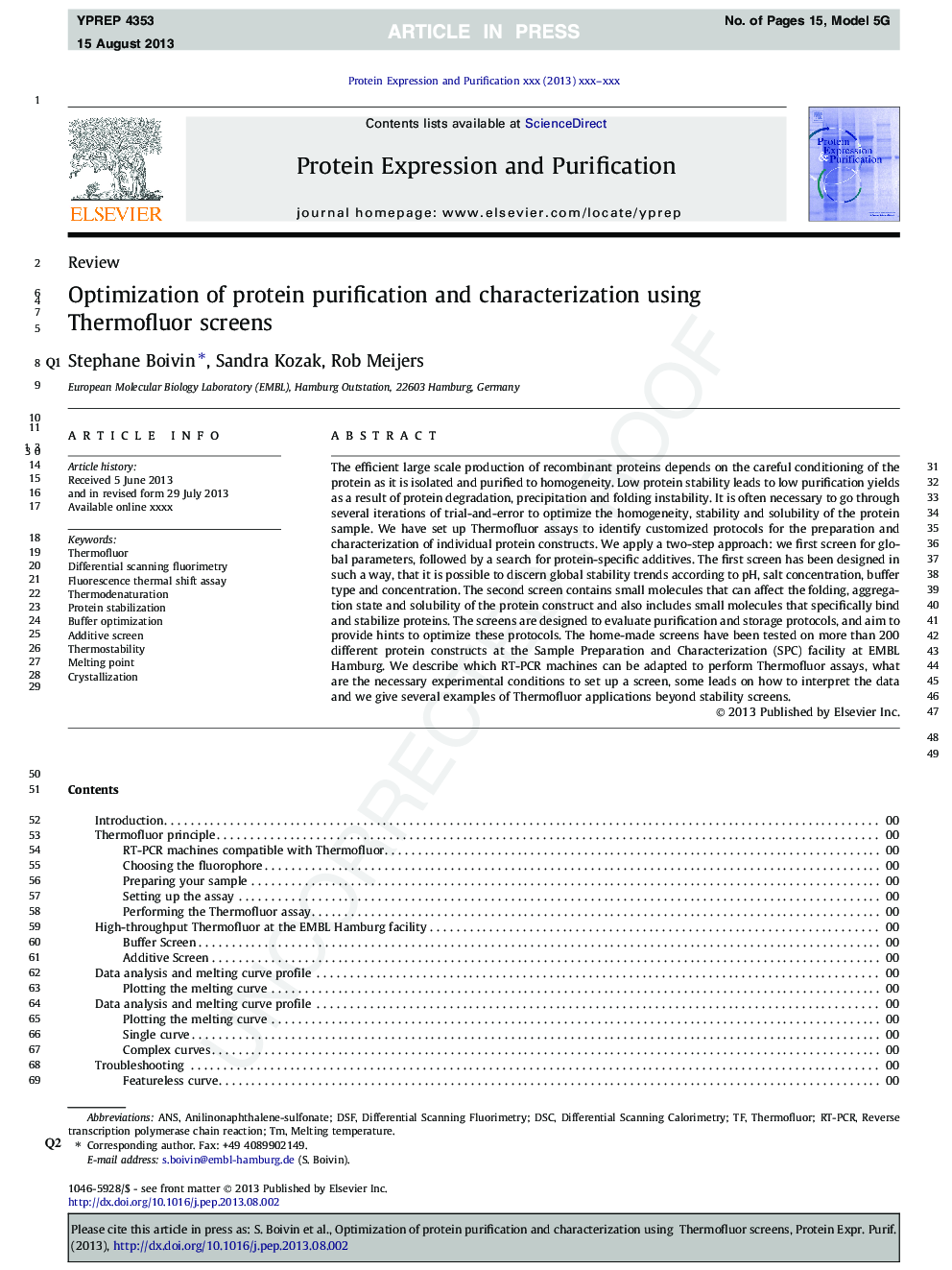| Article ID | Journal | Published Year | Pages | File Type |
|---|---|---|---|---|
| 10843148 | Protein Expression and Purification | 2013 | 15 Pages |
Abstract
The efficient large scale production of recombinant proteins depends on the careful conditioning of the protein as it is isolated and purified to homogeneity. Low protein stability leads to low purification yields as a result of protein degradation, precipitation and folding instability. It is often necessary to go through several iterations of trial-and-error to optimize the homogeneity, stability and solubility of the protein sample. We have set up Thermofluor assays to identify customized protocols for the preparation and characterization of individual protein constructs. We apply a two-step approach: we first screen for global parameters, followed by a search for protein-specific additives. The first screen has been designed in such a way, that it is possible to discern global stability trends according to pH, salt concentration, buffer type and concentration. The second screen contains small molecules that can affect the folding, aggregation state and solubility of the protein construct and also includes small molecules that specifically bind and stabilize proteins. The screens are designed to evaluate purification and storage protocols, and aim to provide hints to optimize these protocols. The home-made screens have been tested on more than 200 different protein constructs at the Sample Preparation and Characterization (SPC) facility at EMBL Hamburg. We describe which RT-PCR machines can be adapted to perform Thermofluor assays, what are the necessary experimental conditions to set up a screen, some leads on how to interpret the data and we give several examples of Thermofluor applications beyond stability screens.
Related Topics
Life Sciences
Biochemistry, Genetics and Molecular Biology
Biochemistry
Authors
Stephane Boivin, Sandra Kozak, Rob Meijers,
